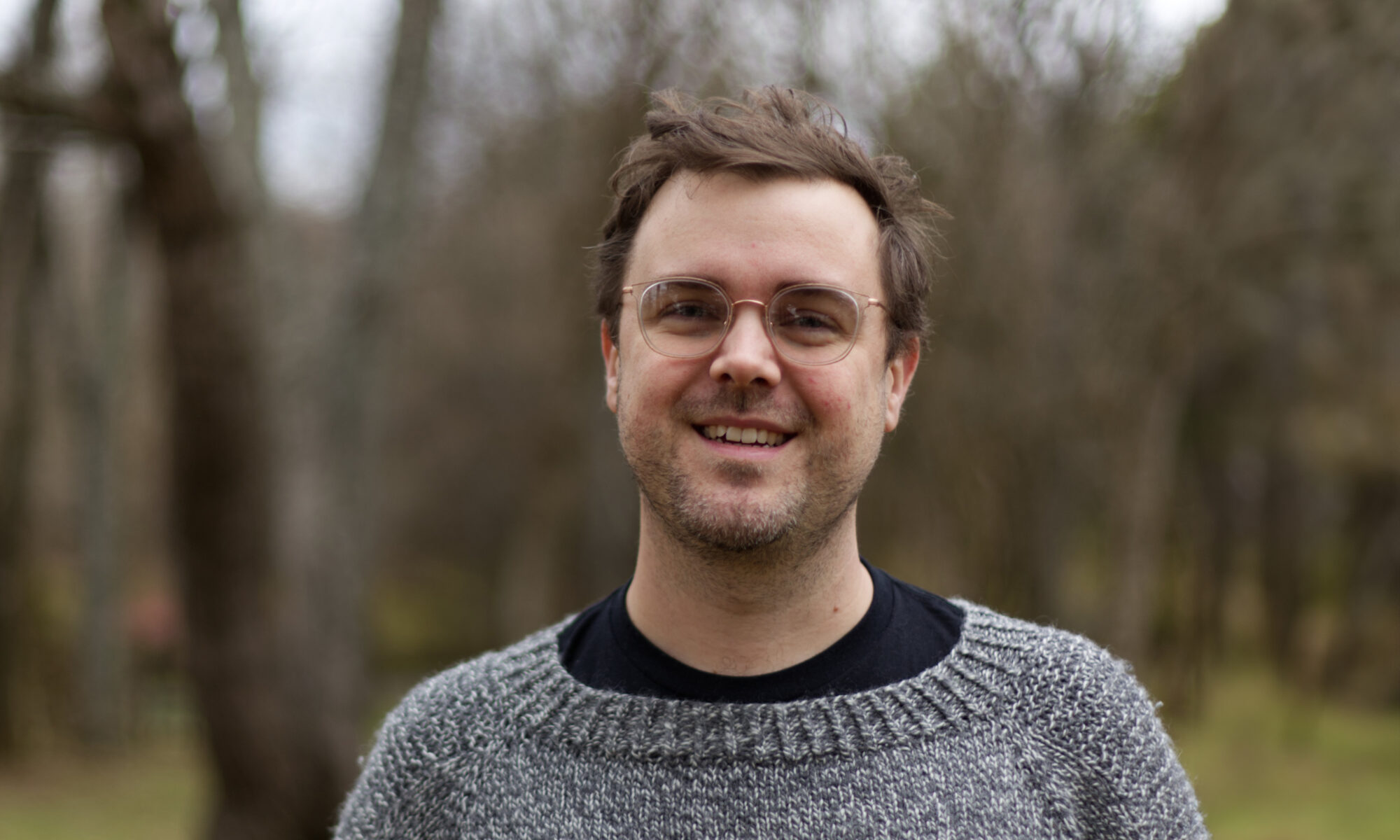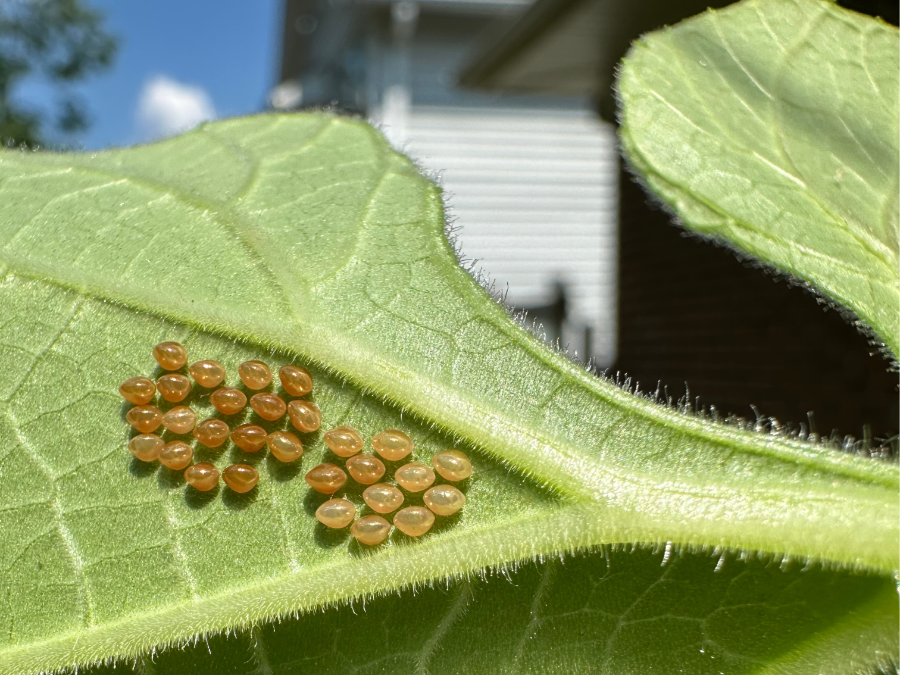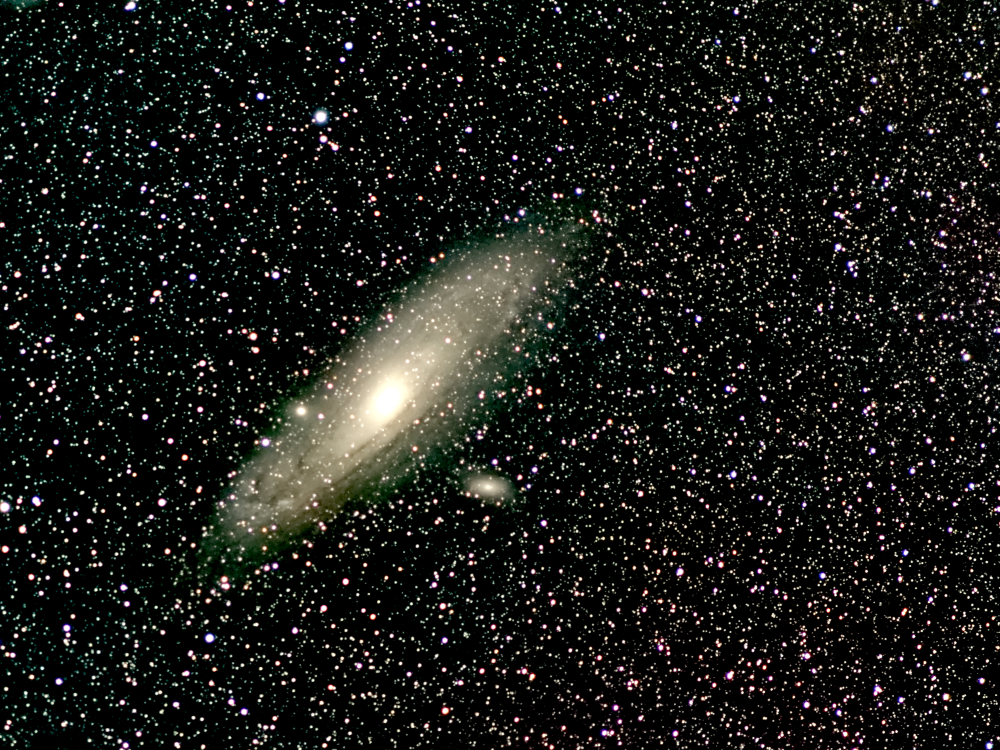
Entomology and Plant Pathology alumnus and bioinformatics consultant Ryan Kuster uses custom code to unlock insights in genomics, metagenomics, and phylogenomics. After completing his master’s degree at UNC Greensboro, Kuster moved to Knoxville, TN, where he obtained his doctoral degree in entomology, plant pathology, and nematology with a concentration in bioinformatics, genomics and molecular interactions. Under the direction of associate professor Meg Staton, he collaborates with a group of faculty and students providing computational solutions to some of today’s most pressing biological questions.
Q&A with Ryan Kuster
Can you tell me a little bit about yourself?
I grew up just outside of Kansas City and received my bachelor’s degree in ecology and evolutionary biology at the University of Kansas. I then completed my master’s degree in biology studying honey bees at UNC Greensboro. In 2014, my wife and I moved to Knoxville for her graduate program, and in 2018, I began my PhD in EPP. I’m currently working as a bioinformatics consultant under the direction of Dr. Meg Staton.
Who is the team of people you work with?
I work with a rotating cast of amazing faculty and graduate students! I primarily work with Dr. Meg Staton, Dr. Kevin Moulton, Dr. Juan-Luis Jurat-Fuentes, along with many other collaborative projects at UTK and ORNL.
What is the primary focus of the lab?
Most of my work revolves around developing custom code and pipelines for processing large datasets in genomics, metagenomics, and phylogenomics.
What is your favorite task to complete?
To me, there is nothing more rewarding than writing code to explore a super-niche biological question. Having a computer effortlessly analyze millions of lines of text encoding biological data still feels like magic.
Can you share a piece of advice or a lesson you have learned from your experiences?
There are so many different skillsets in EPP that somebody somewhere probably has some solid advice on whatever obstacle you’re encountering.
What is the best part of your job?
I really enjoy the feeling of novelty that comes from working with others on such a diverse array of topics. I also love teaching and learning about new approaches in bioinformatics. The field is moving so quickly there are new techniques and software to pick up every week. It’s easy to miss out on new developments without a great team to collaborate with, and thankfully everyone I interact with teaches me something about their area of expertise.
What inspired you to pursue a career in agriculture?
Agriculture is one of humanity’s greatest achievements! Agricultural research encompasses human nourishment, the economy, and the environment, which makes its impact immediately relevant.
What do you consider to be one of your greatest achievements?
Completing my PhD while becoming a father during the pandemic must be up there on the list. The experience taught me to prioritize what matters in my life while maintaining the resilience to accomplish seemingly impossible goals.
If someone wanted to get to where you are now, do you have any advice for them?
Never stop picking up new skills, especially if it’s a challenge. Find the intersection between what you’re good at and what you enjoy and find ways to apply new skills there. Also, document and organize everything you learn, you will forget it.
What are two of your favorite hobbies?
Gardening and astrophotography are my current favorites. They occupy such different aspects of the universe, and each involves a lot of learning and experimentation. Gardening is like a survey course in both entomology and plant pathology that also yields produce.


What is something on your bucket list that you hope to accomplish someday?
I’m not really a bucket list kind of person! Perhaps writing and illustrating a children’s book about science would be fun.
Is there anything that you would like to add?
I’m convinced that the best thinking is done while driving or walking.
